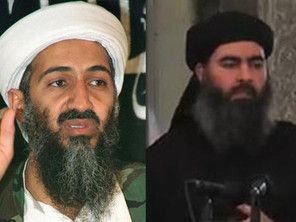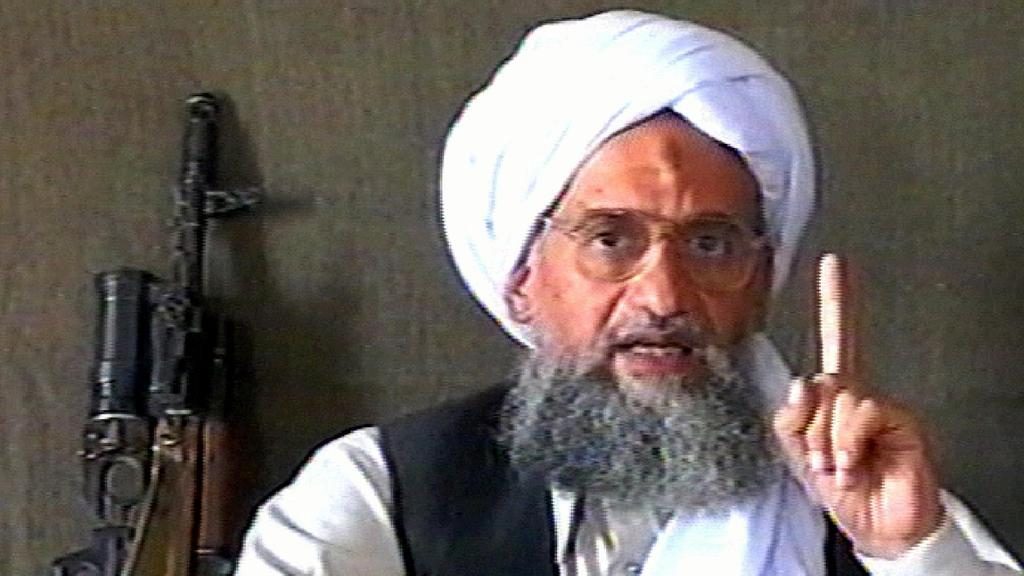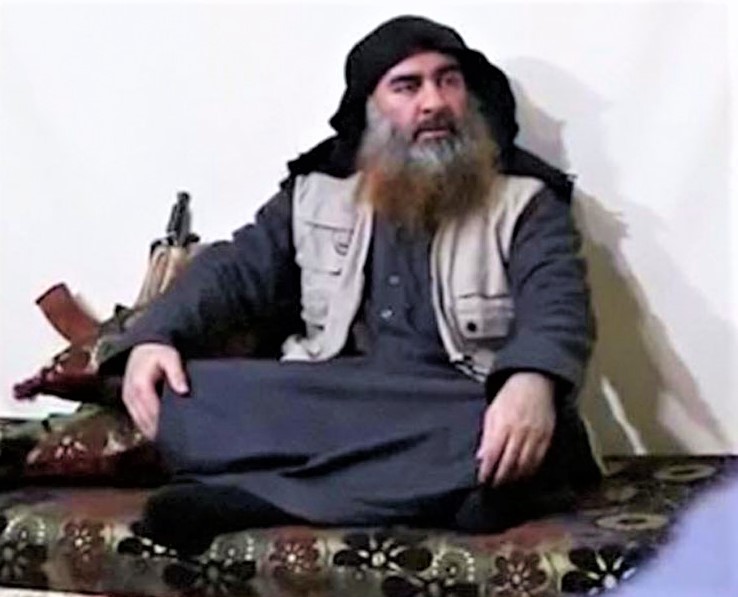Featured Posts

- Index of Psychological Studies of Presidents and Other Leaders Conducted at the Unit for the Study of Personality in Politics
- The Personality Profile of U.S. Supreme Court Associate Justice Brett Kavanaugh
- The Leadership Style of North Korean Leader Kim Jong-un
- North Korea Threat Assessment: The Psychological Profile of Kim Jong-un
- Russia Threat Assessment: Psychological Profile of Vladimir Putin
- The Personality Profile of 2016 Republican Presidential Candidate Donald Trump
- Donald Trump's Narcissism Is Not the Main Issue
- New Website on the Psychology of Politics
- Unit for the Study of Personality in Politics --- 'Media Tipsheet'
categories

- Afghanistan (228)
- Al Gore (2)
- Amy Klobuchar (4)
- Ayman al-Zawahiri (7)
- Barack Obama (60)
- Ben Carson (2)
- Bernie Sanders (7)
- Beto O'Rourke (3)
- Bill Clinton (4)
- Bob Dole (2)
- Campaign log (109)
- Chris Christie (2)
- Chuck Hagel (7)
- Criminal profiles (8)
- Dick Cheney (11)
- Domestic resistance movements (21)
- Donald Trump (31)
- Economy (33)
- Elizabeth Warren (4)
- Environment (24)
- George H. W. Bush (1)
- George W. Bush (21)
- Hillary Clinton (9)
- Immigration (39)
- Iran (43)
- Iraq (258)
- Jeb Bush (3)
- Joe Biden (13)
- John Edwards (2)
- John Kasich (2)
- John Kerry (1)
- John McCain (7)
- Kamala Harris (5)
- Kim Jong-il (3)
- Kim Jong-un (11)
- Law enforcement (25)
- Libya (18)
- Mahmoud Ahmadinejad (6)
- Marco Rubio (2)
- Michael Bloomberg (1)
- Michele Bachmann (173)
- Mike Pence (3)
- Military casualties (234)
- Missing person cases (37)
- Mitt Romney (13)
- Muqtada al-Sadr (10)
- Muslim Brotherhood (6)
- National security (16)
- Nelson Mandela (4)
- News (5)
- North Korea (36)
- Osama bin Laden (19)
- Pakistan (49)
- Personal log (25)
- Pete Buttigieg (4)
- Presidential candidates (19)
- Religious persecution (11)
- Rick Perry (3)
- Rick Santorum (2)
- Robert Mugabe (2)
- Rudy Giuliani (4)
- Russia (7)
- Sarah Palin (7)
- Scott Walker (2)
- Somalia (20)
- Supreme Court (4)
- Syria (5)
- Ted Cruz (4)
- Terrorism (65)
- Tim Pawlenty (8)
- Tom Horner (14)
- Tributes (40)
- Uncategorized (50)
- Vladimir Putin (4)
- Xi Jinping (2)
- Yemen (24)
Links

archives

- November 2021
- January 2021
- November 2020
- October 2020
- September 2020
- August 2020
- July 2020
- April 2020
- March 2020
- February 2020
- January 2020
- December 2019
- October 2019
- July 2019
- May 2019
- April 2019
- March 2019
- February 2019
- January 2019
- December 2018
- September 2018
- August 2018
- July 2018
- June 2018
- April 2018
- March 2018
- February 2018
- January 2018
- August 2017
- July 2017
- June 2017
- May 2017
- April 2017
- February 2017
- January 2017
- December 2016
- November 2016
- October 2016
- September 2016
- August 2016
- July 2016
- June 2016
- May 2016
- April 2016
- March 2016
- February 2016
- January 2016
- December 2015
- November 2015
- October 2015
- September 2015
- August 2015
- July 2015
- June 2015
- May 2015
- April 2015
- March 2015
- February 2015
- January 2015
- December 2014
- November 2014
- October 2014
- September 2014
- August 2014
- July 2014
- June 2014
- May 2014
- April 2014
- March 2014
- February 2014
- January 2014
- December 2013
- November 2013
- October 2013
- September 2013
- August 2013
- July 2013
- June 2013
- May 2013
- April 2013
- March 2013
- February 2013
- January 2013
- December 2012
- November 2012
- October 2012
- September 2012
- August 2012
- July 2012
- June 2012
- May 2012
- April 2012
- March 2012
- February 2012
- January 2012
- December 2011
- November 2011
- October 2011
- September 2011
- August 2011
- July 2011
- June 2011
- May 2011
- April 2011
- March 2011
- February 2011
- January 2011
- December 2010
- November 2010
- October 2010
- September 2010
- August 2010
- July 2010
- June 2010
- May 2010
- April 2010
- March 2010
- February 2010
- January 2010
- December 2009
- November 2009
- October 2009
- September 2009
- August 2009
- July 2009
- June 2009
- May 2009
- April 2009
- March 2009
- February 2009
- January 2009
- December 2008
- November 2008
- October 2008
- September 2008
- August 2008
- July 2008
meta

President Trump: ISIS Leader Abu Bakr al-Baghdadi is Dead
By Maegan Vazquez, Zachary Cohen, and Kevin Liptak
![]()
October 27, 2019
Excerpts
President Donald Trump declared Sunday morning that ISIS leader Abu Bakr al-Baghdadi was dead after a US military raid in northwest Syria over the weekend. …
The President said a US special operations forces mission went after the ISIS leader and there were no US deaths during the operation. …
The death of al-Baghdadi marks the culmination of a years-long hunt to find one of the most wanted terrorists in the world and the man who declared a so-called Islamic caliphate in Iraq and Syria in 2014. …
Trump said al-Baghdadi was chased to the end of a dead-end tunnel by dogs, taking three children with him. At the end of the tunnel, he detonated a suicide vest, killing himself and the children. …
“He died like a dog. He died like a coward. The world is now a much safer place,” Trump said. …
Trump told reporters al-Baghdadi was under surveillance for a couple of weeks and that two to three planned missions were scrapped before the successful one was launched. …
[Secretary of Defense Mark] Esper told CNN’s “State of the Union” Sunday morning that the President approved the raid “late last week” after being presented with different options. …
Esper described the death of the ISIS leader as a “devastating blow” to ISIS. “This is not just their leader, it’s their founder. He was an inspirational leader in many ways,” Esper told Tapper. …
The Psychology of Terrorists (Pt. 2): The Messiah Complex
How might the personalities of bin Laden and al-Baghdadi be similar?

By Stephen A. Diamond, PhD
Psychology Today
September 26, 2014
Excerpts
What motivates terrorist leaders like Osama Bin Laden and Abu Bakr al-Baghdadi, the self-proclaimed head of ISIS? … [L]ike bin Laden, al-Baghdadi seems to exhibit some sort of messiah complex. He reportedly sees himself as the successor to Muhammed, the founder of Islam. To understand better the psychology of someone like al-Baghdadi, about whom very little personal information is currently available, we might do well to look at what we knew and thought we knew about his late predecessor, Osama bin Laden. Here is a previous piece posted on the day the death of bin Laden was announced to the world by President Obama back in 2011:
Obviously, analyzing or profiling the personality of such a shadowy, enigmatic and elusive figure as Osama bin Laden is a difficult task. Nevertheless, in a paper presented at the 25th Annual Scientific Meeting of the International Society of Political Psychology in 2002, Dr. Aubrey Immelman, associate professor of psychology at Minnesota’s St. John’s University, did just that.
Plugging bin Laden’s known biographical data into a personality profile using the second edition of the Millon Inventory of Diagnostic Criteria (MIDC), Immelman concluded that “Bin Laden’s blend of Ambitious and Dauntless personality patterns suggests the presence of Millon’s ‘unprincipled narcissist’ syndrome. This composite character complex combines the narcissist’s arrogant sense of self-worth, exploitative indifference to the welfare of others, and grandiose expectation of special recognition with the antisocial personality’s self-aggrandizement, deficient social conscience, and disregard for the rights of others.”
Elsewhere, Immelman diagnosed Osama bin Laden — as did psychiatrist Dr. Jerrold Post, the renowned CIA political profiler — a “malignant narcissist”: a term based on psychoanalyst Otto Kernberg’s conception of malignant narcissism, the core components of which are pathological narcissism, antisocial features, paranoid traits, and destructive aggression. …
Yet surprisingly, in the final analysis, Dr. Immelman found that a “major implication of the study is that bin Laden does not fit the profile of the highly conscientious, closed-minded religious fundamentalist, nor that of the religious martyr who combines these qualities with devout, self-sacrificing features; rather, it suggests that bin Laden is adept at exploiting Islamic fundamentalism in the service of his own ambition and personal dreams of glory.”
While I agree that Immelman’s diagnoses of malignant or unprincipled narcissist may be accurate, and that Osama’s behavior, at least at first, was primarily self-serving, I strongly doubt the latter part of his commentary about bin Laden not being a closed-minded religious fundamentalist or devout, self-sacrificing martyr. Indeed, from everything I’ve seen, this is exactly — even archetypally — what Osama seems to have become. A religious and political martyr.
Immelman did, however, mention Dr. Millon’s syndrome of “puritanical compulsiveness.” These individuals, writes Harvard psychologist and noted personality theorist Theodore Millon (1996), are “austere, self-righteous, [and] highly controlled.” Their “intense anger and resentment … is given sanction, at least as they see it, by virtue of their being on the side of righteousness and morality.” This resentment-based syndrome certainly closely resembles bin Laden’s messianic character.
Does al-Baghdadi suffer from some mental disorder? Could the ISIS leader, like the late Osama bin Laden, be best understood as a narcissistic personality disorder? Antisocial personality disorder? Paranoid personality disorder? Delusional psychotic? Some hybrid of each? Or is he, perhaps more crucially in this context, like bin Laden before him,what I would call a fanatically religious cult leader with a major messiah complex? (See Part 3)
————————
Commentary
I have not conducted an empirical at-a-distance- psychological assessment of Abu Bakr al-Baghdadi; however, based on my informal observations, Baghdadi’s psychological profile resembles Ayman al-Zawahiri (fundamentalist “abrasive negativist”) more closely than Osama Bin Laden (nonfundamentalist “unprincipled narcissist”).
Related reports on this site
Ayman al-Zawahiri Psychological Profile (May 3, 2011)

Full research report
“Bin Laden’s Brainâ€: The Abrasively Negativistic Personality of Dr. Ayman al-Zawahiri
Paper presented at the 26th Annual Scientific Meeting of the International Society of Political Psychology, Boston, July 6–9, 2003
Osama bin Laden Psychological Profile (May 2, 2011)

Full research report
The Personality Profile of al-Qaida Leader Osama bin Laden
Paper presented at the 25th Annual Scientific Meeting of the International Society of Political Psychology, Berlin, July 16–19, 2002
You must be logged in to post a comment.


